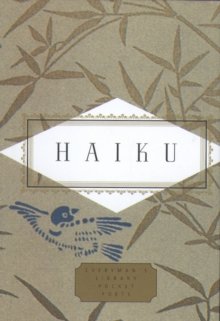 Image 1 of
Image 1 of


Uyghur Poems by Various
The Uyghur people of Central Asia have a long and distinguished tradition of poetry - indeed, their first oral epic was circulating as early as the 2nd century BCE. In the medieval period Sufi poetry flourished, embracing Persian forms such as the ghazal, which spoke eloquently of beauty, love, loss and separation. A major poet, Alshir Navayi (1441-1501) fully established classical Turkic or Chagatai as a perfect vehicle for poetic expression.
Some contemporary poets continue to find inspiration within the traditional forms, while others experiment with a freer style of verse. Uyghur poetry reflects the magnificent natural landscapes where the Uyghurs have lived for two millennia - endless steppes, soaring mountain ranges and mysterious deserts, crossed by the historic Silk Road. It is also shaped by their turbulent past, caught between warring empires or marauding warlords - and their deeply troubled present.
The Uyghurs form a minority in China, where the government is now making a systematic attempt to erase their language and culture. Many intellectuals have been imprisoned, and many poets are now writing from exile, including the editor and translator of this volume, Aziz Isa Elkun, who lives in London. Uyghur Poems is not only a celebration of an ancient and vibrant poetic tradition, but also a vital witness to a culture under threat.
The Uyghur people of Central Asia have a long and distinguished tradition of poetry - indeed, their first oral epic was circulating as early as the 2nd century BCE. In the medieval period Sufi poetry flourished, embracing Persian forms such as the ghazal, which spoke eloquently of beauty, love, loss and separation. A major poet, Alshir Navayi (1441-1501) fully established classical Turkic or Chagatai as a perfect vehicle for poetic expression.
Some contemporary poets continue to find inspiration within the traditional forms, while others experiment with a freer style of verse. Uyghur poetry reflects the magnificent natural landscapes where the Uyghurs have lived for two millennia - endless steppes, soaring mountain ranges and mysterious deserts, crossed by the historic Silk Road. It is also shaped by their turbulent past, caught between warring empires or marauding warlords - and their deeply troubled present.
The Uyghurs form a minority in China, where the government is now making a systematic attempt to erase their language and culture. Many intellectuals have been imprisoned, and many poets are now writing from exile, including the editor and translator of this volume, Aziz Isa Elkun, who lives in London. Uyghur Poems is not only a celebration of an ancient and vibrant poetic tradition, but also a vital witness to a culture under threat.
The Uyghur people of Central Asia have a long and distinguished tradition of poetry - indeed, their first oral epic was circulating as early as the 2nd century BCE. In the medieval period Sufi poetry flourished, embracing Persian forms such as the ghazal, which spoke eloquently of beauty, love, loss and separation. A major poet, Alshir Navayi (1441-1501) fully established classical Turkic or Chagatai as a perfect vehicle for poetic expression.
Some contemporary poets continue to find inspiration within the traditional forms, while others experiment with a freer style of verse. Uyghur poetry reflects the magnificent natural landscapes where the Uyghurs have lived for two millennia - endless steppes, soaring mountain ranges and mysterious deserts, crossed by the historic Silk Road. It is also shaped by their turbulent past, caught between warring empires or marauding warlords - and their deeply troubled present.
The Uyghurs form a minority in China, where the government is now making a systematic attempt to erase their language and culture. Many intellectuals have been imprisoned, and many poets are now writing from exile, including the editor and translator of this volume, Aziz Isa Elkun, who lives in London. Uyghur Poems is not only a celebration of an ancient and vibrant poetic tradition, but also a vital witness to a culture under threat.



